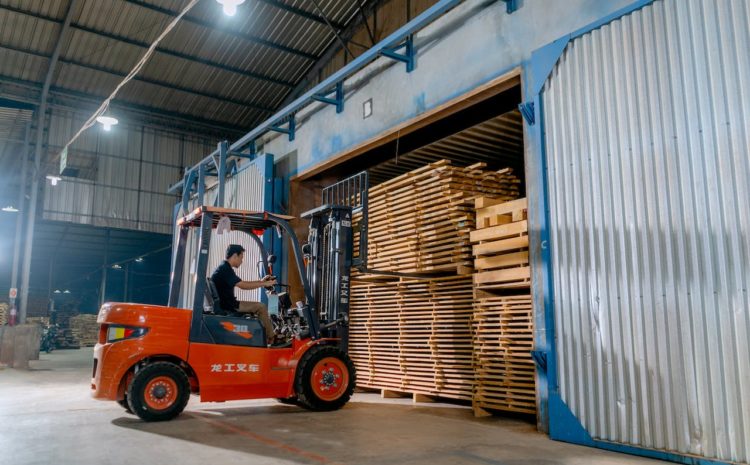
Avoiding Mishaps: Crucial Tips to Prevent Forklift Operator Faults
Introduction:
Forklifts are indispensable in various industries, facilitating the movement of heavy loads with ease and efficiency. However, the power and utility of forklifts come with a responsibility that cannot be overstated. Forklift operator faults can lead to accidents, injuries, and damage to both personnel and property. In this blog, we will delve into preventable forklift operator faults and emphasize the significance of proper forklift training. Whether you are in Brampton, Mississauga, or anywhere else in Ontario, adhering to these guidelines can make a substantial difference in workplace safety.
Inadequate Training: The Foundation of Faults
One of the primary causes of forklift accidents is inadequate training. Forklift operators must undergo comprehensive training to understand the intricacies of operating these powerful machines. In Brampton, Mississauga, and across Canada, forklift training is a legal requirement. Operators should be well-versed in the nuances of the equipment, including safety protocols, load capacities, and maneuvering techniques. Ensuring that forklift operators receive proper training is the first step in preventing avoidable faults.
Ignoring Canadian Forklift Certification Standards
Forklift operators should not only undergo training but also obtain Canadian forklift certification. This certification ensures that operators are well-acquainted with the specific regulations and standards set by Canadian authorities. Ignoring or neglecting certification can lead to serious consequences, both legally and in terms of safety. Companies must prioritize hiring certified forklift operators to minimize the risk of accidents and uphold workplace safety standards.
Neglecting Regular Equipment Maintenance
Faulty equipment is a recipe for disaster in any workplace. Forklifts are no exception. Neglecting regular maintenance checks can lead to malfunctions, breakdowns, and accidents. Operators should be trained to conduct pre-shift inspections, identifying any potential issues before the forklift is put into operation. Companies should also have a systematic maintenance schedule in place to address wear and tear promptly. Regular maintenance not only prevents accidents but also prolongs the lifespan of the forklift.
Unsafe Loading and Unloading Practices
Improper loading and unloading of materials are a common cause of forklift accidents. Operators must be trained to assess the weight and stability of loads, ensuring they are within the forklift’s capacity. Additionally, it is crucial to follow proper loading and unloading procedures to prevent shifts in the load during transport. Investing time in training operators on these practices significantly reduces the risk of accidents related to unstable loads.
Speeding and Reckless Driving
Forklifts are not race cars, and the workplace is not a racetrack. Speeding and reckless driving are significant contributors to forklift accidents. Operators should be trained to adhere to speed limits, especially in areas with pedestrian traffic. Additionally, they should practice responsible driving, avoiding sharp turns and sudden stops. A culture of responsible forklift operation should be instilled within the workplace to ensure the safety of everyone on the premises.
Lack of Communication
Effective communication is crucial in preventing forklift accidents, especially in busy workplaces. Forklift operators should be trained to use horns, lights, and other communication devices to alert pedestrians and other operators of their presence. Clear communication helps avoid collisions and ensures that everyone in the vicinity is aware of the forklift’s movements. Training programs should emphasize the importance of communication as a fundamental aspect of safe forklift operation.
Ignoring Weather Conditions
Outdoor forklift operations are susceptible to weather conditions, such as rain, snow, and ice. Operators must be trained to adapt their driving techniques based on the weather. Slippery surfaces can significantly impact a forklift’s traction, increasing the risk of accidents. Adequate training should include guidelines for operating forklifts in adverse weather conditions, emphasizing the importance of caution and reduced speed.
Emphasis on Safety: Implementing Best Practices
To further enhance safety measures and prevent forklift operator faults, companies can implement additional best practices within their workplace. Regular safety meetings and refresher courses can serve as valuable tools to reinforce proper forklift operation techniques and emphasize the importance of adhering to safety protocols.
Implementing a “buddy system” is another effective strategy. This involves experienced forklift operators mentoring newer ones, sharing insights, and providing guidance on safe practices. This not only aids in skill development but also fosters a supportive culture where safety is a collective responsibility.
Employers should also invest in creating designated pathways for forklifts and pedestrians, reducing the likelihood of collisions. Clear signage and floor markings can guide both operators and pedestrians, ensuring a well-organized and safe working environment.
Furthermore, encouraging a proactive reporting system for near-misses and potential hazards fosters a culture of continuous improvement. By analyzing these incidents, companies can identify trends, implement corrective actions, and continuously refine their safety protocols.
Emergency response training is equally vital. Operators should be well-versed in responding to emergency situations, such as spills, fires, or equipment malfunctions. This comprehensive approach ensures that forklift operators are not only skilled in routine operations but also equipped to manage unexpected challenges, minimizing the potential for accidents. Lastly, integrating advanced safety technologies, such as proximity sensors and collision avoidance systems, can provide an additional layer of protection. While these technologies should not replace proper training, they can function as valuable supplements, offering an extra level of security in dynamic workplace environments.
Conclusion:
Preventing forklift operator faults is a shared responsibility between employers and operators. Forklift training in Mississauga, should not be viewed as a mere formality but as a critical investment in workplace safety. By addressing the root causes of forklift accidents and instilling a culture of safety, businesses can create a work environment where the risk of operator faults is significantly reduced. Prioritizing proper training, certification, maintenance, and safe operating practices is the key to preventing avoidable forklift accidents and ensuring the well-being of everyone in the workplace.

